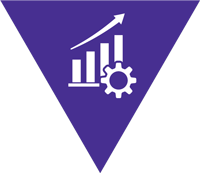
This article was first published in the Lex Witness March 2016 issue.
Technology has always played a game changing role in every realm of our lives and profession. The legal sector has also evolved drastically and has seen rapid changes ever since it has let technology automate things, create and control processes etc. With advancement in the field of technology catered uniquely towards revolutionizing today’s legal landscape, the automation of legal processes has enabled legal professionals to become even more proficient than before. IT & ITES has impacted every aspect of the legal industry, right from court operations to law firm and corporate practice.
Law firms are now functioning more so as businesses versus being restricted to just being professional service driven organizations. As any mainstream business, law firms also have legal and non-legal operation management requirements. It has also become fashionable to offer clients the same industry-wide business practices, which they themselves may follow in their respective companies. Along with this, it is critical to offer efficient and value-added services to clients, which ensures they receive the highest return on their investments in terms of legal spends. For firms who are inclined towards such progressive approach, it is important to adopt an attitude which is open to new products that may completely overhaul the firm’s practice and operational processes at-large.
In this issue, let us take a look below at the technology which has become a part of the legal industry, day in and day out.
ERP Systems
An ERP system is designed as a one-stop operational platform for a law firm, which enables streamlining functionalities and operational processes. It helps in structuring a firm’s existing ad-hoc based system related to financial management, HR, time and billing, expense management, budgeting and so on. These systems not only standardize capability sets but also ensure that well recognized and adopted industry best practices is what becomes the culture within the organization overall. This enhances delivery and hence brings in efficiency in results. As an example, electronic billing (“e-billing”) has almost replaced traditional paper invoices in law firms. ERP systems are also key in regards to accounting and financial process management on a daily or monthly basis.
Practice Management Systems
It is imperative that firms create practice management systems and policies in order to compete successfully, while have a strong and structured in-house set-up. In order to create a strong practice management system, and the policies accompanying that, firms need to consider the elements that drive the firm’s success, along with all the specific dynamics that are unique to its structure.
Below listed are a set of practice management systems which most of the firms across India have adopted:
Staying Connected – Video & tele-conferencing, webinars and other online meeting tools have been ingrained in today’s firms and corporate legal team daily operations. Even, Indian judiciary is becoming more tech friendly, and are gradually being open to video recording case proceedings, and allowing audio-visual equipment within the court rooms. In this increasingly globalized economy, it is only natural for entities across the board and countries to stay connected digitally.
E-Library & Search – Law firms and universities are keener to catalogue books and study materials online, especially in e-libraries tailored specific to firms and institutions. Legal professionals use a wide range of legal databases to perform research, verify case law and track data.
Case Management – Law firms have realized that it is crucial to incorporate electronic case management systems in place, which can enable the firms to compile all data and supporting materials to any specific client and/or matters. Such systems can also help in tracking important dates relevant to the matter, milestones, process flow, personnel involved and much more.
E-Filings & Discoveries – Indian legal industry is leveraging technology as a key asset to handle time intensive tasks like filing trademarks and patents, researching for information on corporates that are publicly available but can be cumbersome in nature, like Board of Directors earning, shares etc. and much more. Indian courts are becoming more technology friendly as well, where in e-discoveries, i.e. assimilation and analysis of electronic data like emails, text messages etc. are getting accepted.
Client Relationship Management – Firms are realizing that they have to step up their game when it comes to CRM in this highly competitive market. Firms are now putting in place CRM systems, which help in existing client management in addition to new leads tracking. These systems can be highly customized to offer CRM personnel alerts regarding clients, key analysis of target clientele, managing records of ongoing branding and positioning activities and more.
With vast options available in the market, it can be tough to explore and understand the systems and software that fit your need and organization. It can certainly be helpful to consult growth advisers in the industry to help you sort through the clutter and identify what works best for you.
In the next issue, we will discuss the new, trending and the upcoming set of technology that the in-house legal community and law firms alike are eyeing and gradually adopting. Stay tuned!
I am the Principal Consultant at the Lex Witness Strategic Counsel Desk, an invitation based initiative, which caters to various entities who seek to create and improve their brand and undertake market activation strategies in the Indian legal market space. Much beyond the space of the magazine, the Strategic Counsel Desk aspires to provide a holistic framework for the firm’s positioning and business growth, primarily focusing on the strength in the Indian legal industry.








